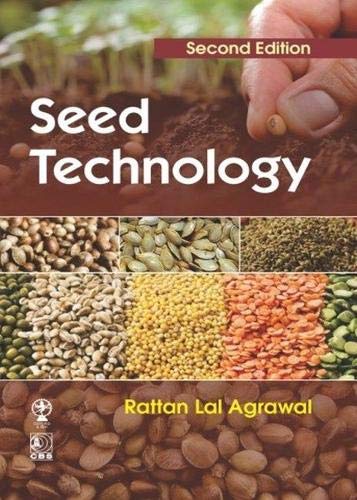Bachelor of Science - Seed Technology Course
|
Degree |
Bachelor of Science |
|
Duration |
3 Years |
|
Course Type |
UG |
|
Major |
Seed Technology |
|
Eligibility |
10+2 |
What is BSc seed technology?
Seed is the most basic requirement for a plant's germination or harvest. Irresponsible seed selection or maintenance might result in low yields and financial losses. As a result, logical standards and approaches must be merged throughout seed selection, planting, and maintenance.
Seed Science and Technology, as a subset of agrarian sciences, focuses on the construction and development of seeds from the moment the egg cell is prepared through the growth of another plant from the seed. In this way, it adds a rational and novel twist to the study of seed-related perspectives, which is at the heart of the plant and harvest development.
The B.Sc Seed Technology program is designed to build a scholastic foundation through semester-by-semester hypothetical evaluation while also developing practical skills through lab modules, examinations, and research.
What is the scope of seed technology?
Holders of a B.Sc Seed Technology degree have a wide range of career options to choose from. Horticulturist, Agriculture researcher, Plant raiser, Enclosure director, Tissue culture master, Farm administrator, and more positions are available.
To offer you a complete picture of the course's professional prospects, we've postponed key regions and the specific occupations associated with them that postgraduates in Seed Science and Technology can look for in terms of their career.
M.Sc. in Seed Science & Technology
Students learn about the growth and formation of seeds from the process of fertilization of the egg cell on the maternal plant through the formation of a new plant from the seed in Seed Science & Technology. The Master of Science in Seed Science and Technology is a two-year program separated into four semesters.
This course will teach students about the theoretical study of seed growth. It also discusses the various ways of inspecting and evaluating seed materials. Biochemistry, botany, other biological disciplines, and genetics are all linked to the M.Sc. in Seed Science and Technology program.
Students will learn about seed technology and production, advanced seed testing methods and procedures, plant breeding and genetics, pomological, molecular biology, seed biology, ornamental nursery production, seed pests and diseases, seed biology, landscape architecture, and seed industry extension by taking this course.
What is the duration of a Master's degree in Seed Science and Technology?
The course will last for 2 years.
M.Sc. in Seed Science and Technology Eligibility
- Candidates must have passed their final year graduation test in their field of study (B.Sc. Agriculture/B.Sc. Biotechnology/B.Sc. Life Sciences/B.Sc. Biology, for example).
- A candidate must have received at least 50% (relaxable for reserved category applicants) of his or her grades from a recognized state, central, or deemed university.
M.Sc. in Seed Science and Technology Admissions Procedure
Admissions to the M.Sc. in Seed Science and Technology program are often based on a merit-based selection procedure, as observed in a large number of institutes/colleges.
A single entrance test-based admission approach is used by many universities and institutes to shortlist students Many reputable institutions and universities do this. To be admitted to the course, students must pass these tests.
M.Sc. in Seed Science and Technology Special Recognition
- Industry of Horticulturists
- Nursery
- Centers for Plant Breeding
- Laboratory for Research
Seed Technology Book Pdf
Reading is a recreational activity. Reading books is a great habit to develop. We have a wide selection of books to choose from. This book is portable, so you can carry it with you everywhere you go. It's easy to transport. It could be an excellent gift for you and your loved ones. According to the care directions, keep away from fires.
Fundamentals Of Plant Physiology
'Plant stress physiology' is my field of study. As a research scholar, I found three subjective books by R. K Sinha, S. K Verma, and this book to be really useful. These were ideal for my MSc and, more recently, my Ph.D. When I went to buy the books, I saw that there was no mention of INDEX in the description. So I figured posting these would be awesome. I'm very sure it's on everyone's mind.


